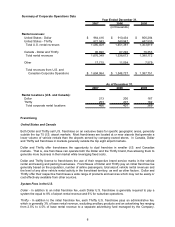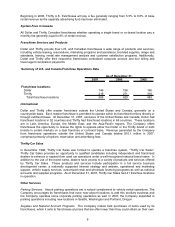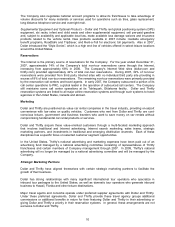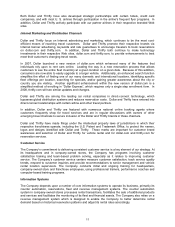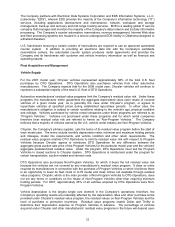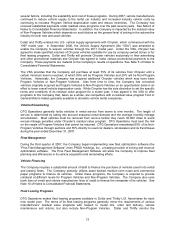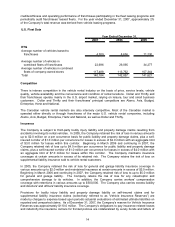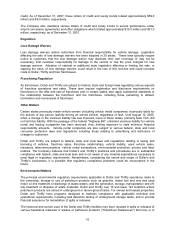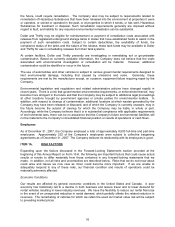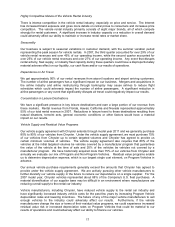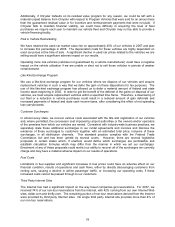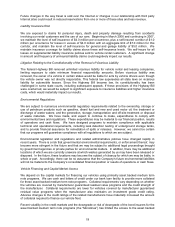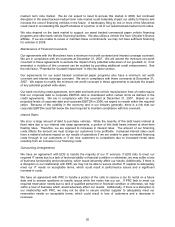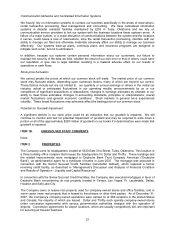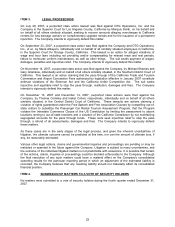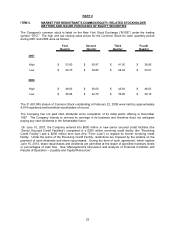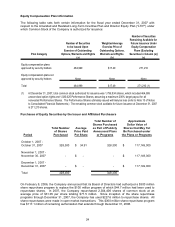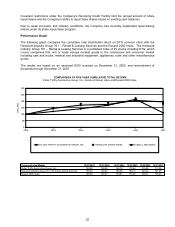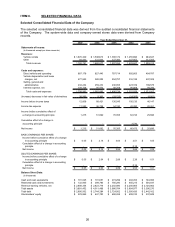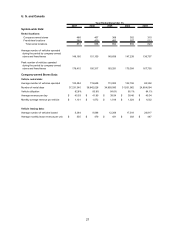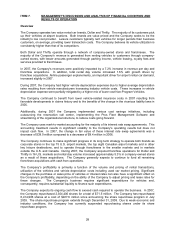Thrifty Car Rental 2007 Annual Report Download - page 26
Download and view the complete annual report
Please find page 26 of the 2007 Thrifty Car Rental annual report below. You can navigate through the pages in the report by either clicking on the pages listed below, or by using the keyword search tool below to find specific information within the annual report.Additionally, if Chrysler defaults on its residual value program for any reason, we could be left with a
material unpaid balance from Chrysler with respect to Program Vehicles that were sold for an amount less
than the guaranteed residual value or for incentive and reimbursement payments that were not paid. If
Chrysler fails to maintain financial viability, we could have difficulty in acquiring the level of fleet
purchases we require each year to maintain our vehicle fleet and Chrysler may not be able to provide a
vehicle financing facility.
Risk in Vehicle Remarketing
We have retained the used car market value risk on approximately 45% of our vehicles in 2007 and plan
to increase this percentage in 2008. The depreciation costs for these vehicles are highly dependent on
used car prices at the time of sale. A significant decline in used car prices related to the vehicles we are
selling would have a significant adverse impact on our results.
Operating more risk vehicles (vehicles not guaranteed by a vehicle manufacturer) could have a negative
impact on the vehicle utilization if we are unable or elect not to sell those vehicles in periods of weaker
rental demand.
Like-Kind Exchange Program
We use a like-kind exchange program for our vehicles where we dispose of our vehicles and acquire
replacement vehicles in such a way that we defer the gain on these dispositions for tax purposes. The
use of this like-kind exchange program has allowed us to defer a material amount of federal and state
income taxes beginning in 2002. In order to get the benefit of the deferral of the gains on disposal of our
vehicles, we must acquire replacement vehicles within a specified time frame. Therefore, a downsizing of
our fleet or a reduction in vehicle purchases could result in a reduced amount of gain deferrals and
increased payments of federal and state cash income taxes, after considering the effect of net operating
loss carryforwards.
Customer Surcharges
In almost every state, we recover various costs associated with the title and registration of our vehicles
and, where permitted, the concession cost imposed by airport authorities or the owners and/or operators
of the premises from which our vehicles are rented. Consistent with industry-wide business practices, we
separately state these additional surcharges in our rental agreements and invoices and disclose the
existence of these surcharges to customers together with an estimated total price, inclusive of these
surcharges, in all distribution channels. This standard practice complies with the Federal Trade
Commission Act and has been upheld by several courts. However, there are several legislative
proposals in certain states which, if enacted, would define which surcharges are permissible and
establish calculation formulas which may differ from the manner in which we set our surcharges.
Enactment of any of these proposals could restrict our ability to recover all of the surcharges we currently
charge and may have a material adverse impact on our results of operations.
Fuel Costs
Limitations in fuel supplies and significant increases in fuel prices could have an adverse effect on our
financial condition, results of operations and cash flows, either by directly discouraging customers from
renting cars, causing a decline in airline passenger traffic, or increasing our operating costs, if these
increased costs cannot be passed through to our customers.
Third Party Internet Sites
The Internet has had a significant impact on the way travel companies get reservations. For 2007, we
received 74% of our non-tour reservations from the Internet, with 42% coming from our own Internet Web
sites, dollar.com and thrifty.com. The remaining portion of non-tour reservations derived from the Internet
were provided by third party Internet sites. No single third party Internet site provides more than 8% of
our non-tour reservations.
18


